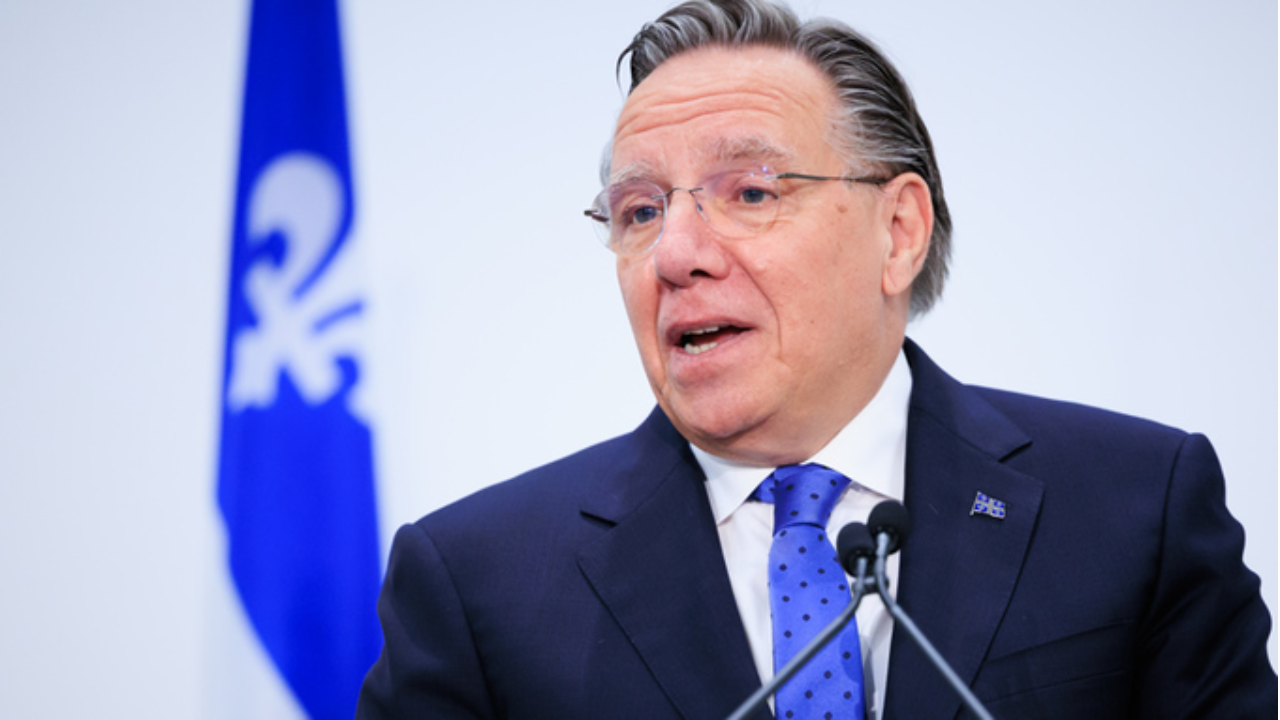
UAE and Yemen Strengthen Legal and Judicial Cooper
UAE and Yemen attorney generals met in Abu Dhabi to strengthen legal ties, enhance public prosecutio

Premier François Legault has announced a major cabinet shuffle as he works to regain public trust and prepare for the next provincial election on October 5, 2026. Speaking at the swearing-in, Legault admitted that while changes had been made over the past seven years, they were not enough.
“I want, more than ever, to fight. I am not in a popularity contest. What motivates me is the love of the Quebec people,” Legault said.
The shuffle introduces new ministers, moves seasoned veterans into different portfolios, and reflects Legault’s focus on four priorities: the economy, government efficiency, security, and identity.
Several prominent ministers are taking on new roles:
Geneviève Guilbault, former transport minister, becomes minister of municipal affairs, a position she had requested.
Jonatan Julien takes over as transport minister.
Bernard Drainville, formerly in charge of education, moves to environment.
Sonia LeBel becomes education minister.
Benoit Charette, the former environment minister, is now responsible for infrastructure.
These changes signal Legault’s push to address housing, transport, and environmental concerns, while still balancing the province’s cultural and identity debates.
During his announcement, Legault underlined the challenge of preserving Quebec’s identity, blaming the federal government for an “explosion of immigration.”
He said immigration numbers have created heavy pressures on housing, schools, healthcare, and the province’s cultural identity.
“I do not blame the immigrants themselves… but there is a limit to our capacity to welcome and integrate,” Legault stated.
Legault also introduced fresh faces to bring new energy into his team:
Donald Martel – agriculture, fisheries, and food
Samuel Poulin – youth affairs
Jean-François Simard – natural resources and forests
Amélie Dionne – tourism
Éric Girard (not the finance minister) – regional economic development
Other notable changes:
France-Élaine Duranceau becomes treasury board president.
Ian Lafrenière moves to public security but keeps his Indigenous affairs responsibilities.
Christopher Skeete takes on English-speaking Quebecers’ relations, plus international and francophonie affairs.
Pascale Déry becomes employment minister.
Kateri Champagne Jourdain moves to family minister.
Martine Biron is now higher education minister.
Caroline Proulx takes responsibility for seniors and the status of women.
Sonia Bélanger becomes housing minister.
Some experienced ministers are staying put:
Eric Girard as finance minister
Christian Dubé as health minister
Simon Jolin-Barrette as justice minister
Christine Fréchette for economy, innovation, and energy
Jean-François Roberge for immigration, French language, and secularism
Lionel Carmant for social services
Jean Boulet for labour
Mathieu Lacombe for culture and communications
Gilles Bélanger for cybersecurity and digital technology
Isabelle Charest for sports, recreation, and outdoors
Chantal Rouleau for social solidarity and community action
These stable portfolios reflect Legault’s intent to keep continuity in critical areas like health, finance, and justice.
Not all ministers are returning. François Bonnardel, public security minister, announced he was removed from cabinet but intends to run again in 2026. He and others were linked to the Gallant commission review of overspending on the digital SAAQclic project.
Other resignations include:
André Lamontagne, agriculture minister
Suzanne Roy, family minister
Andrée Laforest, municipal affairs minister, who plans to run for mayor in Saguenay.
These exits have opened doors for the new generation of cabinet ministers.
Legault’s Coalition Avenir Québec (CAQ) is trailing in the polls, especially after losing three consecutive byelections to the Parti Québécois (PQ).
The shuffle is not just about ministerial posts but about showing voters a refreshed vision. Legault is expected to present his opening speech to the legislature on September 30, outlining his strategy and response to months of citizen consultations.
The shuffle has stirred conversations about whether Legault’s government can regain lost ground. Supporters believe the mix of experienced ministers and new energy could help the CAQ reconnect with voters. Critics, however, say that without stronger results in housing, health, and affordability, no shuffle will solve the trust gap.
Legault insists the new cabinet reflects the government’s readiness to protect Quebec’s identity, strengthen services, and rebuild public faith.
Premier François Legault’s cabinet shuffle is one of the most significant changes since he first came to power. With a mix of loyal veterans, new leaders, and reshaped roles, the government is preparing for the crucial 2026 election.
For Quebecers, the coming months will reveal if these changes are enough to address daily struggles with healthcare, housing, and cost of living — while preserving the unique cultural identity of the province.